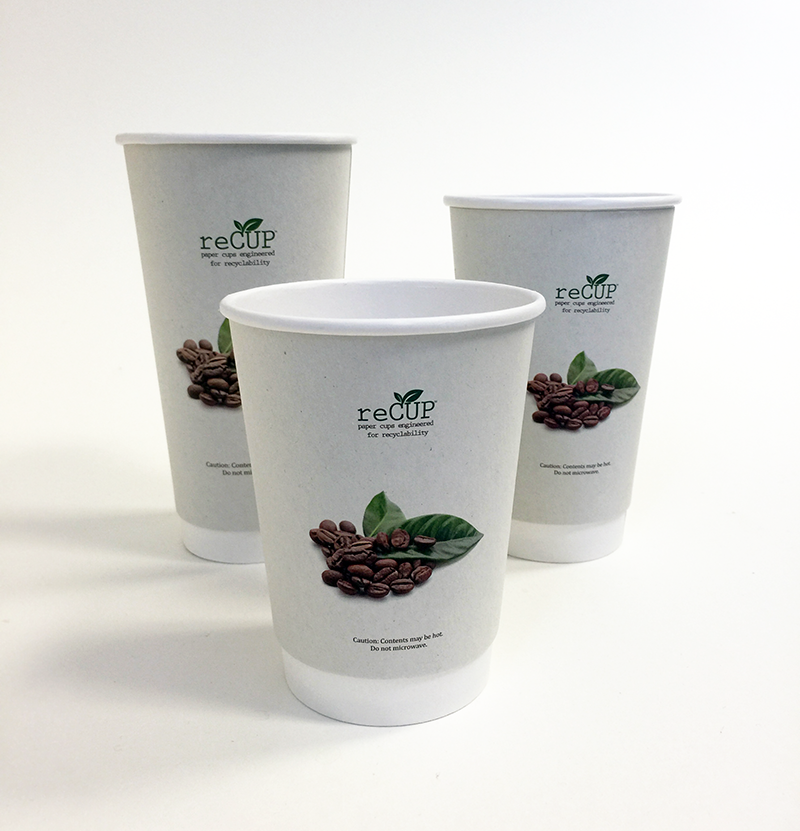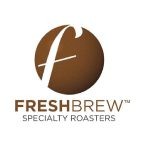A Better Solution for Coffee on the Go
As seen in Fresh Cup Magazine, May 2017http://www.freshcup.com/a-better-solution-for-coffee-on-the-go/

It’s Saturday morning: the cribbage board is out, a newspaper lays splayed open on the counter, and the kettle spits steam as water heats for a pour-over. I cradle my ceramic mug in both hands, carrying it ceremoniously to the Chemex, eager to capture the aromas of first bloom before settling in for a leisurely morning of cards.
My idealistic view of coffee consumption? Certainly. An everyday ritual? Hardly. Sure, it would be nice if we were all in the habit of sitting and sipping our coffee and tea from hand-crafted mugs. But that’s a far cry from reality when it comes to consumer behaviors. To-go culture is alive and well—and creating lots of waste. While the majority of a to-go cup is comprised of paper, traditional take-away cups are rejected by recycling companies because of the polyethylene coating used to keep the cup liquid friendly. This lining is incompatible with standard paper recycling processes, and as such, cups are often treated as waste. A few specialized recyclers have invested in processes to remove the polyethylene coating found on traditional paper cups, but, the process is costly and the rendered fibers are low in quality—only usable in a low-value application such as tissue paper. The ability to transform a paper cup into high-quality recycled paperboards is key—cups need to be made of material that’s valuable to recycle to incentivize recycling facilities to get on board. It’s unlikely we’ll see a massive changeover to ceramic cups anytime soon (though we’re trying to inspire a movement). In the meantime, how can “coffee on the run” be made more sustainable? The next best thing after ceramic would be a cup that’s affordable for cafés to use, performs as well as a traditional paper cup, and can be manufactured with the same process and equipment as traditional cups. This ideal cup would also be engineered to be recyclable in standard recycled paper mills—profitably—as if there was no polyethylene coating at all, allowing it to be used in high-quality recycled paperboards. The makers of reCUP believe they’ve found this ideal solution. They’ve created a fully recyclable paper cup that meets the above criteria. The new cup technology was engineered by Smart Planet Technologies and uses an interior coating called EarthCoating, a mineralized blend of polyethylene and calcium carbonate. The cup is designed to be fully repulpable and recyclable using traditional paper recycling equipment and processes. The ability to transform a paper cup into high-quality recycled paperboards is key—cups need to be made of material that’s valuable to recycle to incentivize recycling facilities to get on board. The new recyclable to-go cup is also winning over major names in coffee that are looking to influence a wave of change industry wide. UK coffee giant Costa Coffee made global headlines when they announced plans to run product tests with reCUP as part of an effort to transition to using fully recyclable cups. Costa had already taken steps to promote in-store recycling of traditional cups, but also opted to explore early adoption of reCUP to allow customers to recycle cups anywhere. As more cafés offer a recyclable takeaway cup, pressure builds for industry-wide adoption. With increased volume of recyclable cups, additional recycling jobs are required to meet the demand for processing reusable materials, extending the reach of sustainability afforded by to-go cup technology far beyond the café.
We may be far from adopting an everyday ceramic habit, but we’re certainly a significant step closer to ending the unnecessary waste caused by to-go cups.

In the Wild
FreshBrew, one of the largest US-based coffee roasters and the coffee partner of American Airlines, has recently begun exploring how EarthCoating may be used as an environmentally friendly alternative to traditional plastic coatings for the paper cups and other paperboard barrier packaging they use to serve their products.
